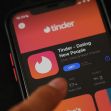An ongoing lawsuit against Bumble Holding Limited and Bumble Inc. (Bumble) is now bringing up new questions about liability and deceit as the company moves to dismiss the complaint. The suit, filed in January, was brought by a Bumble user who alleges the dating app purposefully misrepresented some of its higher-priced, premium features.
Court documents state “Plaintiff Harsh Alkutkar seeks to hold Defendants Bumble Holding Limited (“Bumble”) and Bumble Inc. liable for alleged misrepresentations arising out of his purchase of premium features—SuperSwipes and Spotlights—in the Bumble app.”
Bumble offers a free level of the app where, unlike other dating systems, a heterosexual woman can initiate a conversation, and the males cannot but instead must wait to be contacted.
Simultaneously, Bumble offers upgrades for a higher cost, such as their “Superswipes” and “Spotlights,” which they claim “increase the likelihood of matching with another user.”
Bumble also promises in advertising and app verbiage that the enhanced, paid upgraded versions of their dating app will allow users to have “up to” ten times more matches and/or conversations with others on the app.
Alkutkar alleges Bumble deceived him via false advertising. Bumble disagrees with the plaintiff, saying the allegations take their promises out of context and that the allegations do not meet the legal standards applicable to fraud claims.
As part of the upgrades, Bumble claims their representations included that the larger range of results is directly linked to the quantity of services a consumer purchases for Spotlights or Superswipes.
The language, the company alleges, is “up to” and not specific in results. In addition, the attorneys for Bumble state the “up to” upgrades were also included in advertising with several other purchase options in numerous quantities of purchasing options. The company claims its language implies consumers may not receive any responses. The plaintiff, they claim, was never the victim of false advertising because of the advertising verbiage, which never promised anything.
In addition, the motion states, “Bumble, … used the qualifier “up to” in its statements to make clear that the use of these features could increase his connections with other Bumble users “up to 10 times,” and that such an outcome of 10x was not guaranteed. Moreover, the context of the statements is key; they were presented alongside several different purchase options—a user could buy packs of SuperSwipes or Spotlights in various quantities, including thirty, fifteen, five, or one—thus making it clear that the predicted range of outcomes (“up to 10x”) was related to the quantity purchased.”
The company points to specific laws in fraud cases to prove its point in the dismissal papers. Bumble states the plaintiff has not met Rule 9(b)’s heightened pleading standard. Rule 9 (b) of the Federal Rules of Civil Procedure requires fraud must be pled with particularity. Since the phrasing “up to 10X” is not a specific promise, the dependents believe the lawsuit must be dismissed.
Rule 9(b) is often cited for being a burden on plaintiffs in cases involving the False Claims Act, which allows any private citizen to sue individuals, companies or other entities that are defrauding the United States government, and then recover damages and penalties on the government's behalf.
The plaintiff in the Bumble Case, their attorneys allege, does not prove fraud with particularity. The Bumble lawyers state the plaintiff does not meet “Rule 9(b)’s heightened pleading standard.”
“One SuperSwipe by definition may be used only once on a single user profile,” the court dismissal document by attorneys alleges. “Taken in their proper context, Bumble’s clear statements would therefore not, as the law requires, deceive a reasonable consumer (let alone Plaintiff). The Complaint should be dismissed with prejudice as Plaintiff cannot make out a required element in each of his claims as a matter of law.”
The company alleges a reasonable consumer would not have been deceived.
In court documents, the attorneys state that the plaintiff’s arguments “blithely ignore this context and in doing so strain credulity.”
Lastly, the dismissal claims the California court does not have personal jurisdiction over Bumble Inc, since it’s a “holding company incorporated in Delaware and headquartered in Texas that does no business in California nor owns or operates the Bumble app.”
The dismissal hearing is scheduled for June 30.






